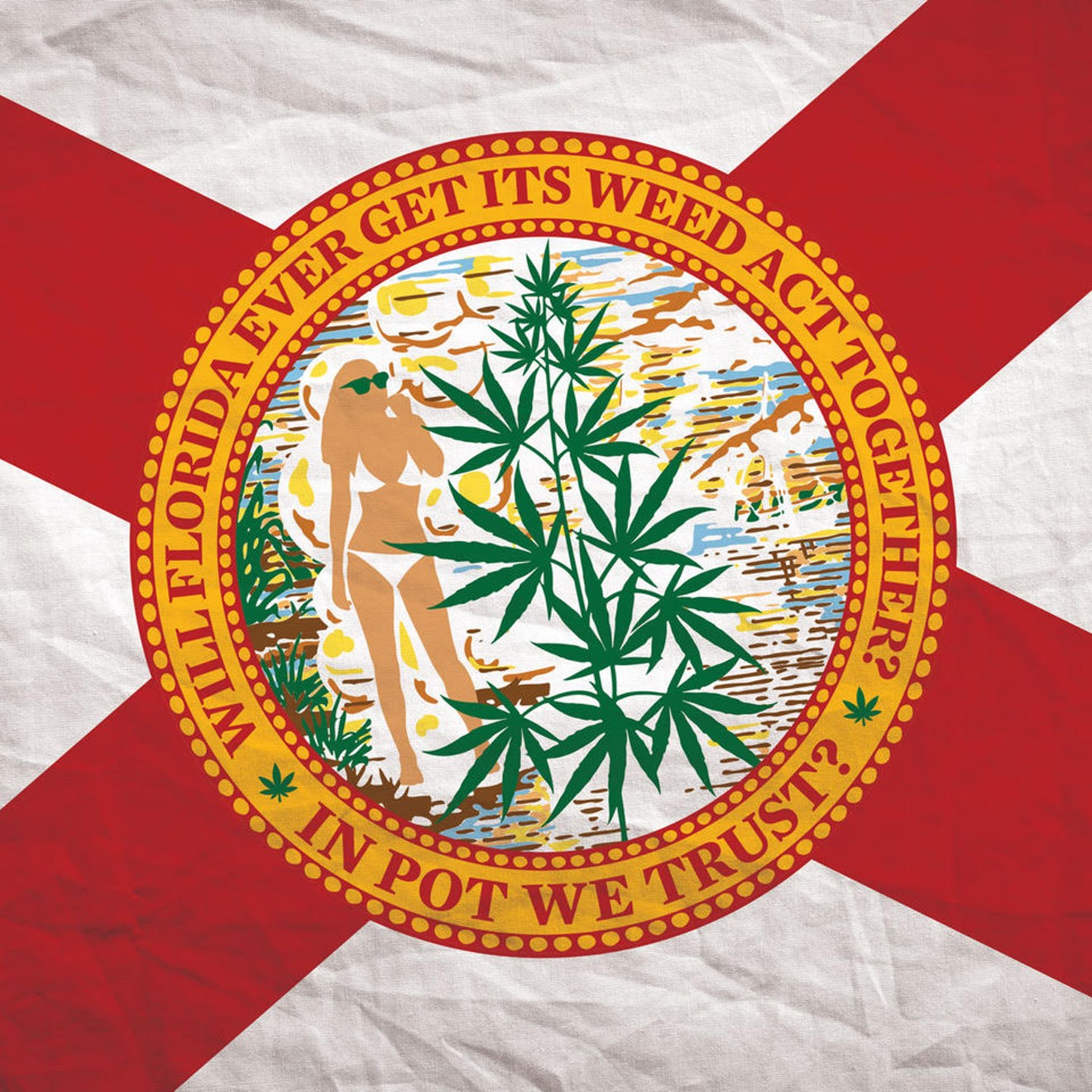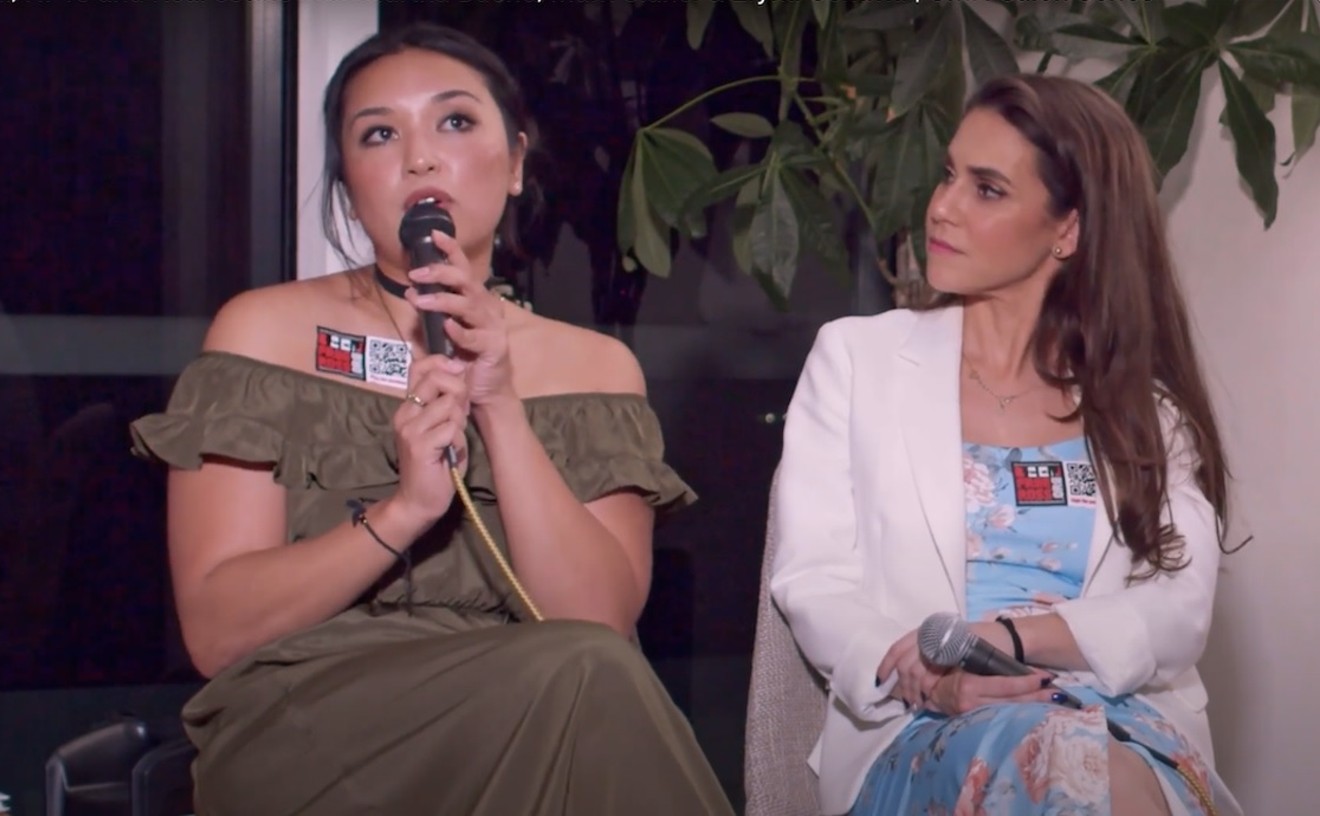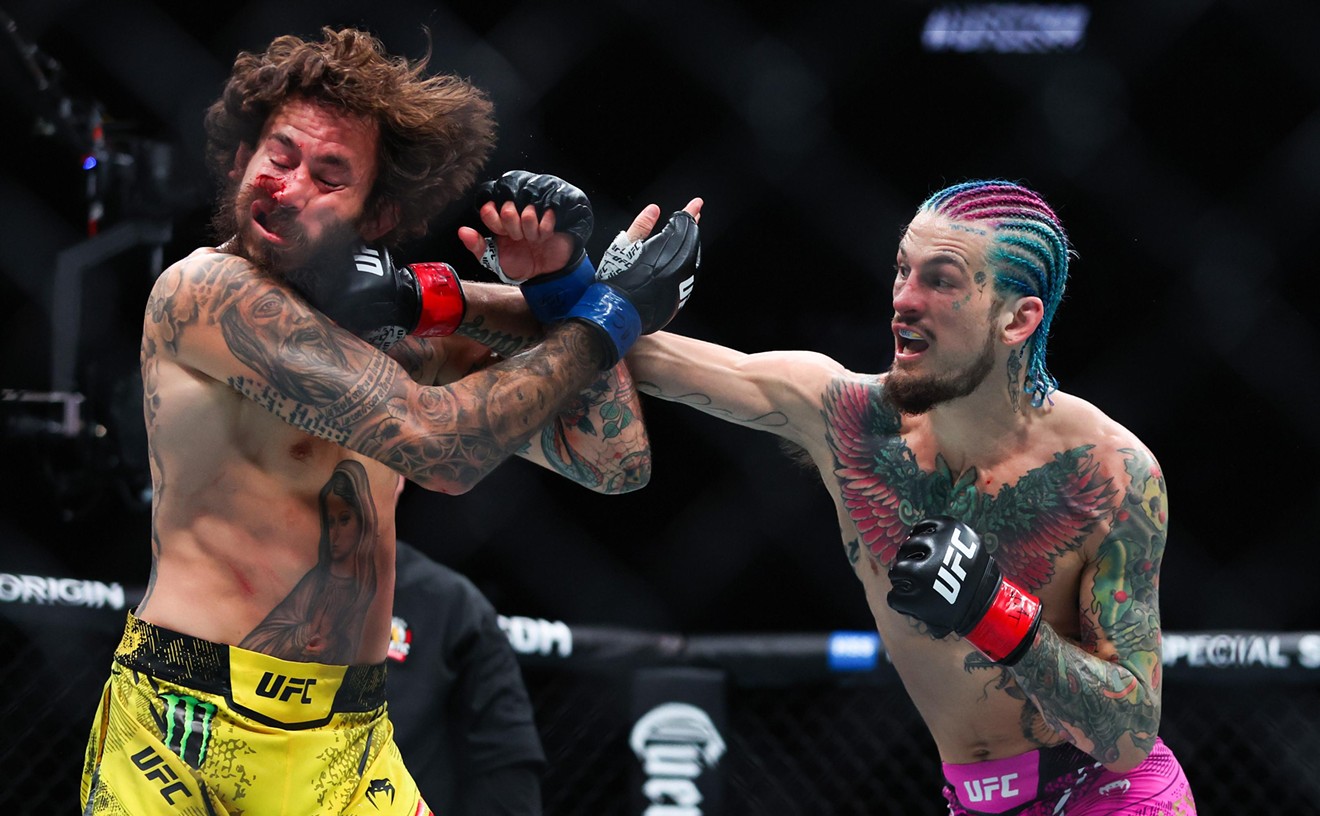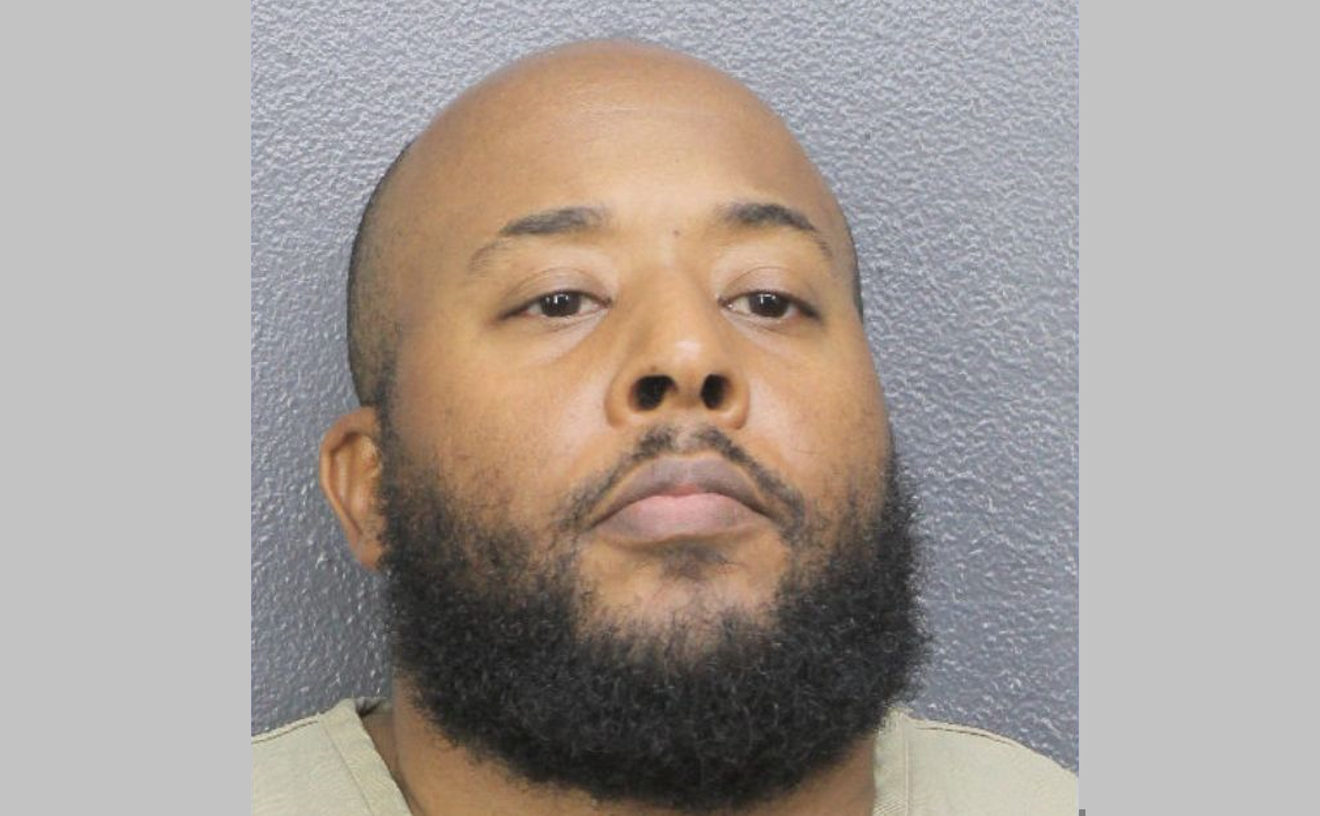This month, Virginia became the 18th state — and the first Southern state in the nation — to legalize the recreational use of marijuana. In the birthplace of George Washington and other founding fathers, residents 21 and older can now grow their own marijuana, share their harvest with friends and family, and walk around with up to an ounce of bud. (Retail sale in the state will come online in 2024.)
Even northeastern bastions of cannabis intolerance have gotten in on the act to free the weed. Last month, state lawmakers legalized the herb for adult use in New York, where a notorious police practice of stopping and frisking civilians on the street led to a disproportionate number of Black and Latino residents getting arrested for petty marijuana charges.
On the flip side, Florida legislators, Gov. Ron DeSantis, and the Florida Supreme Court are total buzzkills, creating obstacles to make it even more difficult to pass progressive marijuana laws.
During the current legislative session, Republican members of the Florida House and Florida Senate attempted to push through measures that would cap the levels of THC, cannabis' main psychoactive compound, in medical marijuana legally sold in the state, despite a recent poll that showed most Floridians think that's a bad idea. While DeSantis doesn't support the cap legislation, the governor continues to oppose full legalization. So it's a safe bet that while Republicans remain in control of state government, marijuana prohibition will remain in full effect at the legislative level.
Floridians really have only one option: a state constitutional amendment that would give adults the right to consume cannabis. Standing in the way is the Florida Supreme Court, which has been sitting on a pair of proposed petitions to put recreational marijuana on the 2022 ballot. In order for the initiative to get in front of voters, the high court must review and approve the proposed language.
As the clock runs down, marijuana activists warn that Floridians may miss another shot to vote for legalization after an effort to get it on the 2020 ballot fizzled.
There's even a bigger sense of urgency to get it done in 2022, as Republican leaders in Tallahassee keep pushing through legislation that makes it tougher to pass constitutional amendments.
Last year, the legislature passed a measure calling on the Florida Supreme Court to look at whether proposed amendments violate the U.S. Constitution. This year, legislators are aiming to kneecap the ability of political committees that push for constitutional amendments to raise unlimited funds from deep-pocketed donors. A proposed bill would limit contributions to $3,000 per donor.
"It's harder than it's ever been to legalize marijuana in Florida, at a time the right to cannabis is more important than ever," Jodi James, executive director of the Florida Cannabis Action Network, tells New Times. "It remains to be seen if the groups behind the two petitions, if they can get past the Supreme Court review, are still cohesive enough to take it to the finish line. Putting together an initiative and getting it on the ballot is hard. Getting it past the voters is even more challenging."
In February 2020, the political committee Sensible Florida presented oral arguments before the Supreme Court for its proposed amendment, which would permit any Florida resident 21 and up to possess, use, buy, and transport up to 2.5 ounces of cannabis, as well as marijuana paraphernalia. It also calls for existing medical-marijuana treatment centers to sell and distribute cannabis products to adults and allows people in the state to grow up to six plants in their homes for personal use.
Four months later, the high court heard oral arguments via Zoom from attorneys representing the committee Make It Legal Florida, which is proposing a similar amendment. The only difference is that the language drafted by Make It Legal, which is financially backed by current medical-marijuana license holders and cannabis business interest groups, doesn't include a home-grow provision.
In both cases, Florida Attorney General Ashley Moody and the Florida Legislature contested the proposed amendments, saying that the initiatives conflict with the federal marijuana prohibition law and that the ballot language is misleading. The Supreme Court is not required to rule on the amendments by a certain date — a fact that has caused marijuana proponents to question whether the conservative-leaning justices are intentionally delaying decisions on both measures.
Florida Agriculture Commissioner Nikki Fried, an elected Democrat who oversees the state's medical-marijuana licensing program, says the Supreme Court has taken too long to render its rulings.
"I don't have any inside information as to what the Supreme Court is doing," says Fried, who's reportedly mulling a 2022 run at the governor's office. "But it would be irresponsible for the Supreme Court to hold on to citizens' petitions in a manner that does not allow petitioners enough time to cure ballot language or to move on and finish gathering signatures to get on the actual ballot."
Of the two petition groups, Make It Legal is further along in the signature-gathering process. According to the Florida Division of Elections, only 25 of the 556,027 signatures Make It Legal has collected are no longer valid since the group initiated its petition drive in 2019. Sensible Florida collected 95,967 signatures, but only 31,149 remain valid. To get the proposed amendment on the ballot requires 891,589 valid voter signatures.
"Make It Legal is certainly further along, and I think they have a better shot of getting on the ballot," Fried says. "Neither of the ballot proposals are perfect, but both move the ball forward."
Sensible Florida chairman Michael Minardi did not respond to a request for comment.
Nick Hansen, chairman of Make It Legal, declined to comment to New Times, but sources close to the group say the committee is in stand-by mode and can quickly ramp up once the Supreme Court issues a decision. Raising cash won't be an issue, either. For the failed 2020 marijuana legalization effort, Make It Legal amassed $8.2 million, mostly from entrenched companies such as Surterra Holdings and MedMen, which already hold medical-marijuana retail licenses in Florida.
It doesn't matter which initiative makes the ballot, as long as Floridians have the opportunity to end a major facet of the war on drugs, says Moriah Barnhart, a marijuana activist from Tampa.
Barnhart and a group of mothers recently formed a nonprofit organization called Women's Initiative for a Safe and Equitable Florida, or WISE Florida, to help educate the public about why ending marijuana prohibition is a step in the right direction to eliminating drug laws that unfairly target minorities, while at the same time providing local and state governments with an economic windfall.
"One thing people across the U.S. are agreeing on is that cannabis should be legalized," Barnhart says. "It's an issue that is more popular than any politician in the country. It's very clear that our elected officials don't understand that they are elected to serve the will of the people."
Marijuana
It's 2021 — Why Hasn't Florida Legalized Weed Yet?
It's a safe bet that while Republicans remain in control of state government, marijuana prohibition will remain in full effect.

Will Florida ever get its weed act together?
Photo-illustration by Alexander Flores
[
{
"name": "Editor Picks",
"component": "17482312",
"insertPoint": "4",
"requiredCountToDisplay": "1"
},{
"name": "Inline Links",
"component": "18711090",
"insertPoint": "8th",
"startingPoint": 8,
"requiredCountToDisplay": "7",
"maxInsertions": 25
},{
"name": "Air - MediumRectangle - Combo - Inline Content",
"component": "17482310",
"insertPoint": "8th",
"startingPoint": 8,
"requiredCountToDisplay": "7",
"maxInsertions": 25
},{
"name": "Inline Links",
"component": "18711090",
"insertPoint": "8th",
"startingPoint": 12,
"requiredCountToDisplay": "11",
"maxInsertions": 25
},{
"name": "Air - Leaderboard Tower - Combo - Inline Content",
"component": "17482313",
"insertPoint": "8th",
"startingPoint": 12,
"requiredCountToDisplay": "11",
"maxInsertions": 25
}
]










